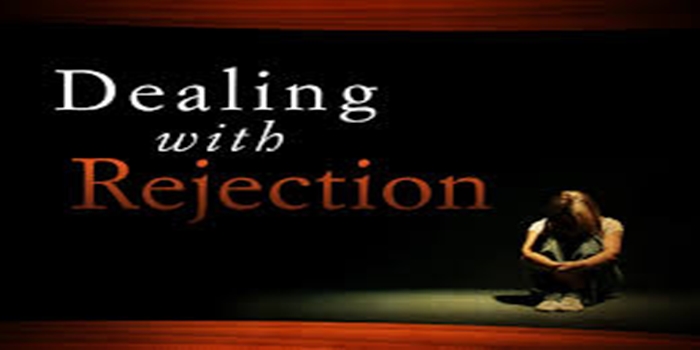In this article, we discussed the meaning of rejection, the examples, causes, the effect, the types, we talked about the tips on how to deal with rejection
Definition
Rejection is the act or process of rejecting. elimination, dismissal, refusal. the state of being rejected. A person may reject, or refuse to accept, a gift, for example. In the field of mental health care, it most frequently refers to the feelings of shame, sadness, or grief people feel when they are not accepted by others.
Here are some examples of rejection:
A teacher rejecting an excuse for being late
A committee rejecting a proposal
A person rejecting a gift
A significant other ending a relationship
A produce inspector rejecting crates of berries that have mold
Rejection can have many causes, including:
Social anxiety disorder: A fear of rejection can be a component of social anxiety disorder or occur on its own.
Rejection sensitive dysphoria: This is an intense emotional sensitivity to it or criticism. It can be learned or genetic.
Childhood neglect issues: These can be a major cause of frequent rejection.
Borderline personality disorders: These can make it difficult to blend in with others.
A belief that you’re always being judged
A fear of not being accepted, A desire to belong,
A desire for control,
A desire for a meaningful existence.
Rejection can have many negative psychological and physical effects, including:
Emotional distress
it can cause feelings of loneliness, low self-esteem, anger, anxiety, depression, jealousy, sadness, and shame.
Behavioral changes
This can lead to aggression, poor impulse control, and social isolation. People who are highly sensitive to rejection may be more likely to engage in these behaviors.
Cognitive effects
Rejection can reduce performance on difficult intellectual tasks.
Physical effects
It can lead to poorer sleep quality and a weakened immune system. Severe rejection can also cause a numbing response, both emotionally and physically.
Increased sensitivity to future rejection
This can lead to feelings of insecurity and a heightened sensitivity to future rejection.
Rejection can have positive effects, such as:
Learning
It can help you learn and grow from your experiences. For example, if you were rejected for a job, you might learn how to be a better interviewer or researcher.
Resilience
This can help you develop resilience if you view it as a challenge to overcome. You can try to cultivate a resilient mindset by embracing rejection as an opportunity to learn and grow.
Confidence
Rejection therapy can help you develop more confidence in dealing with minor . You might also become more comfortable asking for what you want.
There are several types of rejection, including:
Acute rejection
A type of transplant rejection that usually occurs within the first six months after a transplant. It can be cellular or humoral.
Chronic
The leading cause of organ transplant failure, chronic rejection occurs when an organ slowly loses its function. It can’t be treated effectively with medication, and some people may need a new transplant.
Romantic
While it can be painful, romantic rejection can also help identify things that need to be worked on.
Social
People with mental health conditions or who are neurodivergent can experience social rejection. For example, autistic people may be, if they can’t conform to neurotypical communication styles.
Peer rejection
A term that describes the many ways children exclude and hurt each other, such as gossiping and spreading rumors.
sensitivity
An emotional response that can cause people to believe they are no longer liked if they don’t receive a response to a text message.
Here are some ways to deal with rejection:
Acknowledge your feelings: It’s normal to feel hurt or disappointed after it, so allow yourself to process those emotions without judgment.
Reframe it positively: Try to reframe the situation in a way that gives you power. For example, you can consider that it can sometimes be out of your hands and even be in your interest.
Don’t take it personally: Remember that there are people who won’t like you, even if you’re a good person.
Look for the learning opportunity: it can provide opportunities for self-discovery and growth.
Actively seek feedback: Feedback can help you recognize that is sometimes out of your hands.
Practice self-compassion: Remember the amazing person you are.
Focus on activities you enjoy: Spend time with loved ones or talk about how you’re feeling.
Write about your feelings: Research suggests that writing about your feelings can help you process them more quickly.
Accept it: Acknowledge your emotions and don’t brush them off.
Talk about it: Share your feelings with a friend who has had a similar experience.
Have a positive mindset: Think about the positive effects of it and how it can help you do better.
Keep trying: Don’t let it stop you from pursuing your goals
Letting goes of self-blame
Seeing opportunities for growth
Engaging in self-care
Feeling your emotions
Listing your successes
Validating your feelings
Looking for the lessons
Knowing your worth
Conclusion
Experiencing it can strengthen emotional resilience. It teaches individuals how to cope with disappointment and bounce back from setbacks.it often prompts , it can help clarify what one truly wants.


